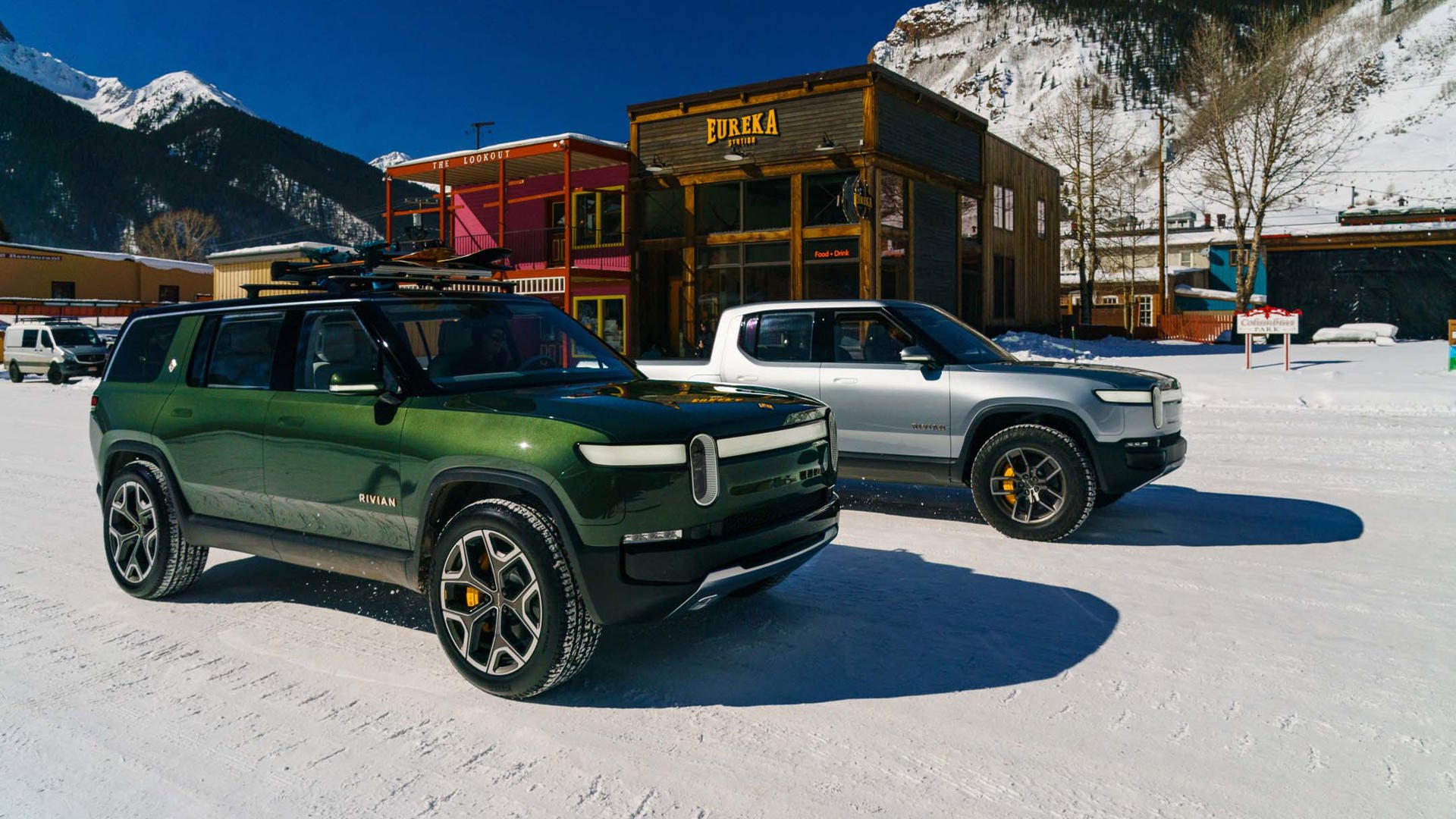The electric truck revolution has begun, at least if you ask the manufacturers. Many brands are pushing to bring these vehicles to market, including the biggest truck seller of them all. When Ford announced the upcoming electric F-150, the message was clear: We’re taking electric trucks seriously, and you should too.
Before we declare that electric pickups are here to unseat their internal-combustion counterparts, however, we first have to examine all the strengths and weaknesses that are inherent to electric vehicles and see how they apply to the world of pickup trucks.
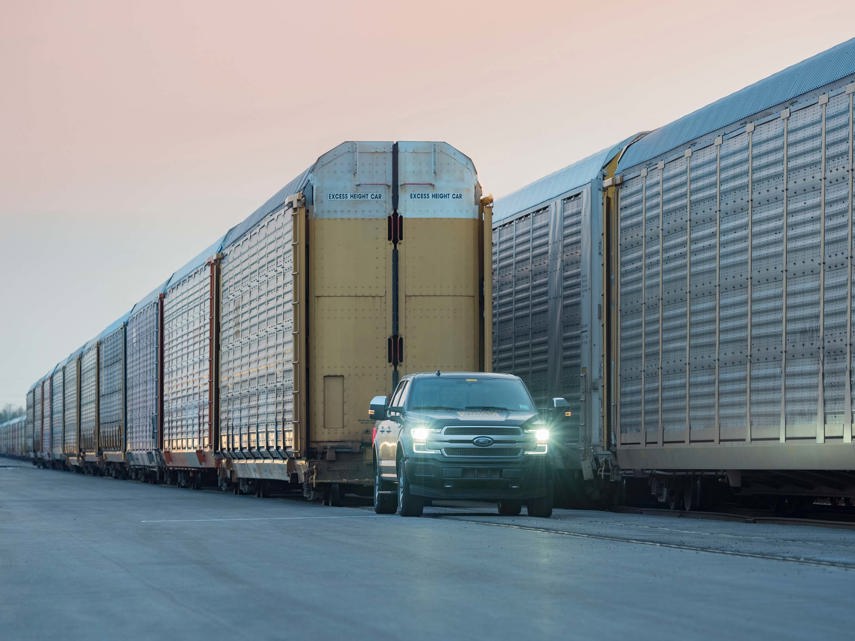
Pro – Instant Torque
The world of trucks is dominated by torque, as this rating will tell you exactly how your truck will handle big loads. When you feel an engine struggle down low as it begins to pull your trailer forward, that’s torque in action – and electric motors are incredible at delivering this kind of pulling power.
Thanks to that instant torque, electric pickups will always have an advantage over their internal-combustion counterparts when it comes to the ease with which they tow and haul payload. This power delivery also means that gear reduction is basically not necessary, and the role of the transmission changes quite a bit, needing fewer gears to deliver the same performance.
Con – Range
Conversely, one of the biggest challenges facing electric vehicles is how long they can keep delivering that outstanding performance – once your juice is drained, you’ll have to wait while your battery recharges. This is especially important with pickup trucks, as these vehicles are designed to haul heavy trailers and loads, both demanding tasks that will rapidly drain the battery.
For example, the top-trim Tesla Cybertruck claims to have 500 miles of range, which on its face is a big number; but if a trailer is going to cut that in half, it instantly becomes less appealing as a work vehicle. Many pickups also work mainly in rural areas, where travelling long distances is a given. Towing a trailer across the country is going to take much longer if you have to stop and every few hundred miles.
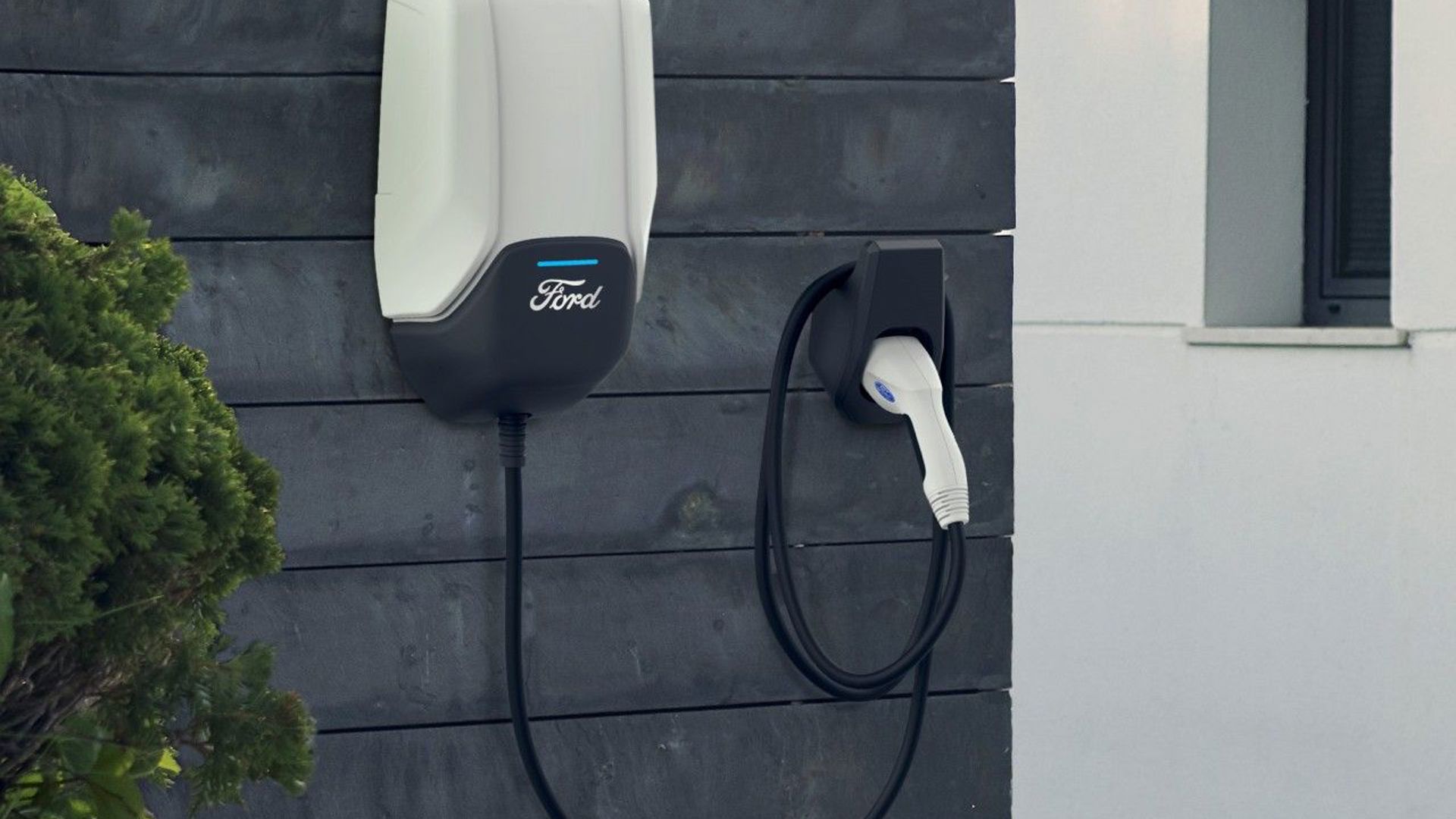
Con – Charge Times
Charge times go hand-in-hand with range: The longer the range, the larger the battery; the larger the battery, the longer it takes to charge. For some, a short range could be acceptable if charge times were also short. But as it is right now, most EVs still take over an hour to fully recharge with the fastest systems available, while many home chargers take even longer – some vehicles requiring an overnight charge to replenish a fully drained battery. In a worst-case scenario, it can turn a weekend job into a week-long ordeal.
This is an issue for all electric vehicles, but is amplified in the world of trucks as many of these are work vehicles designed to earn you money. If the wheels aren’t turning, you aren’t earning, and sitting around charging batteries is not exactly the best way to keep your business running. If charging speed can be increased, it will go a long way to making electric trucks more palatable to the general public.
Pro – Maintenance
Charging stops aside, opting for electric motors over an internal combustion engine means much less downtime for maintenance, as these motors don’t have nearly as many moving parts. The entire driveline is less complicated as well – you don’t even need a transmission, or at most a much simpler unit. Electric trucks should be able to last a long time and be more affordable to keep running.
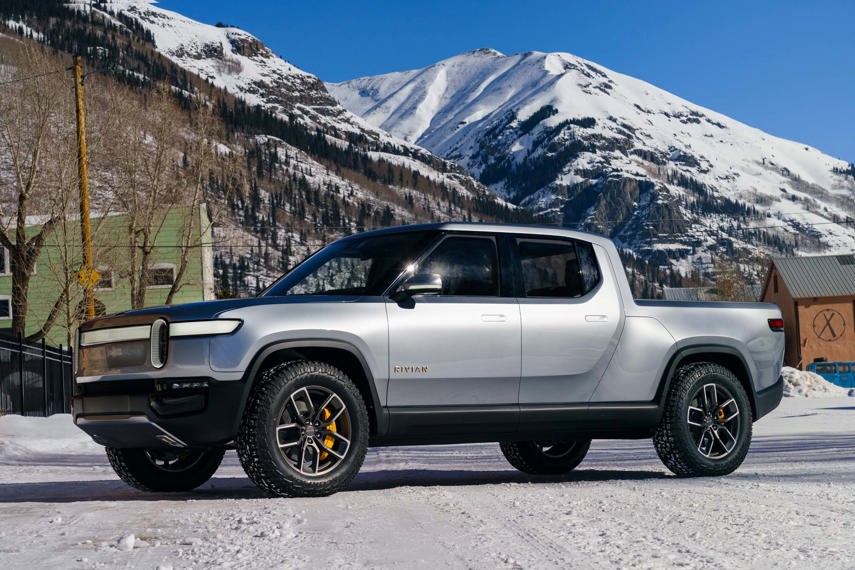
Pro – Four-wheel Control
In fact, the simplicity of an electric vehicle driveline means that engineers can get a little creative: by incorporating multiple electric motors, a vehicle can have individual power units either for each axle or even for each wheel. This will allow electric trucks to have four-wheel drive that can offer more control than ever.
Since the driveline is not all mechanically connected like it would normally be, it also means that electric trucks can do things like turning on the spot, a feature Rivian has already shown off and dubbed the “Tank Turn.” Having individual control at each wheel also removes the need for locking differentials, as these drivetrains will be able to replicate the effect quite easily.
Con – Temperature Effects
Trucks have a tendency to find themselves in the toughest places on the planet, whether that be in sweltering quarries in Arizona or ice roads in the north. Both extreme heat and cold will suck range out of the batteries by affecting their ability to discharge and recharge normally. This is yet another issue common to all electric vehicles that rely on a battery, but will be acutely felt by drivers who depend on their pickup trucks in tough environments.

Pro – Packaging
Electric trucks have unique opportunities when it comes to packaging and we’ve already seen some brands come up with some clever ideas to take advantage of their flexibility.
For example, taking the engine out of the front of these trucks leaves you with a huge space for more storage. Since there is no driveshaft, the Bollinger B1 has a pass-through straight down the centre, capable of carrying a load of lumber entirely enclosed in the cabin of the vehicle. The Rivian R1T also has pass-through storage, but it runs the width of the truck at the bottom rear of the cab. If there was a main driveshaft, these designs wouldn’t be possible.
Con – Weight
While electric vehicles don’t need to account for a driveshaft or a heavy combustion engine, they do all have battery packs. Even with the latest technology, batteries are still heavy; and to drive a pickup truck, large battery packs are going to be necessary. Any weight that goes into the battery packs takes away from the payload capacity of the truck, so find the right balance between range and capability will be key.
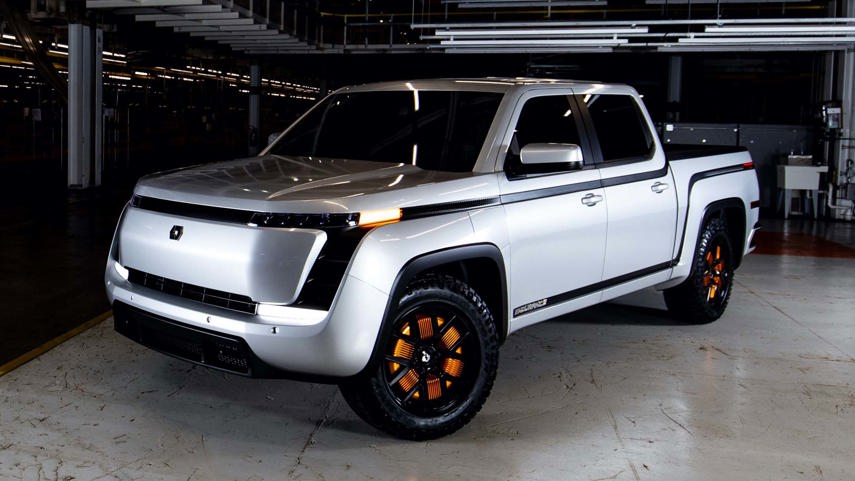
Electric trucks are definitely coming, but it’s clear that there are still barriers holding them back from competing on even footing with their gas-powered counterparts. Are consumers ready to live with range anxiety and the inconvenience of charging EV trucks in order to reap the benefit of reduced operating costs and driving performance?
Whatever the answer, we won’t have to wait long – electric trucks will start to hit the market as early as 2021.
